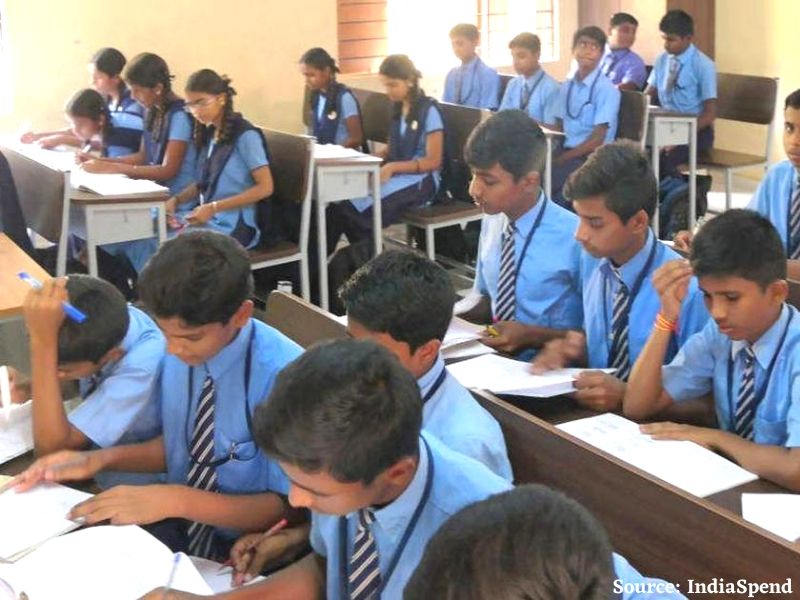 The coronavirus aka covid-19 pandemic has swooped down on the country’s 375,000 private unaided (independent) schools and estimated 400,000 budget private schools (BPS) like a totally unexpected black swan calamity. With the economy in total lockdown for 68 days and a large number of employees and workmen in MSMEs (micro, small and medium) firms and companies, which employ 90 percent of the national labour force, suffering salary cuts, furloughs and lay-offs, state governments have ordered private schools to desist from collecting fees for the lockdown period. These orders have created unprecedented challenges including closure of thousands of private schools especially BPS countrywide.
The coronavirus aka covid-19 pandemic has swooped down on the country’s 375,000 private unaided (independent) schools and estimated 400,000 budget private schools (BPS) like a totally unexpected black swan calamity. With the economy in total lockdown for 68 days and a large number of employees and workmen in MSMEs (micro, small and medium) firms and companies, which employ 90 percent of the national labour force, suffering salary cuts, furloughs and lay-offs, state governments have ordered private schools to desist from collecting fees for the lockdown period. These orders have created unprecedented challenges including closure of thousands of private schools especially BPS countrywide.
Against this backdrop, the Trinamool Congress government of West Bengal (pop.91 million) led by stormy petrel chief minister Mamata Banerjee has emerged as perhaps the sole state administration with some sympathy for private schools. The notifications and orders of the state’s education ministry are mild. They advise West Bengal’s 1,200 private independent schools and nearly 300 BPS to refrain from raising tuition fees for the academic year 2020-21 (which began in April), and to desist from imposing penalties on parents for late payment of school fees of the past four months. Moreover in media interviews, Banerjee made it clear that she doesn’t support the ‘no fees during lockdown’ demand of some parents associations bearing in mind that schools need to continue paying teachers and staff salaries.
Responding to the state government’s appeal and also to parents facing financial difficulties due to the lockdown, prominent city schools have agreed not to hike the school fee for this year. However, in spite of fee hike waiver, parents of many children in private schools haven’t paid fees for the first quarter (April-June), and have pleaded for waiver of library, laboratory, games, computer and transport charges since schools are shut.
With the fees payment due date for the July-September quarter approaching, some school managements in the state have started offering partial waivers excluding bus fees and meal charges and waiving penalties for late payment. Some schools have also given parents the option to clear arrears in instalments.
Inevitably, these adjustments and concessions have had a cascading effect on teachers’ remuneration with several schools slashing teacher salaries by 20 percent which has nullified the pay rise that teachers in the state had belatedly received in January under the Sixth Pay Commission Award. On June 29, 100 principals of private CBSE schools in Kolkata and neighbouring districts wrote to chief minister Mamata Banerjee requesting the right to suspend online classes for children of defaulting parents.
However, with an eye on West Bengal’s legislative assembly election which is less than a year away, unlike chief ministers of most other states who have taken the populist line of ordering private schools to desist from collecting tuition fees while continuing to pay teachers, Banerjee is treading warily. Well aware that West Bengal’s bhadralok (refined middle class) places a premium on the high-quality education dispensed by the state’s private schools, she has abstained from directly intervening in the thorny private schools fees issue. Instead, she has lobbed the ball in the courts of CBSE and CISCE, requesting their intervention.
This tone of caution is maintained by education minister Partha Chatterjee. “We have requested schools not to increase the tuition fee for this academic year and also not to charge penalty. The rest of the decisions will have to be taken by the respective affiliating bodies. Therefore, I have informed them about developments in our state and asked them to look into the matter,” says Chatterjee.
The circumspection and maturity that Banerjee has displayed in her second term in office after TMC ended 34 years of uninterrupted misrule (1977-2011) over West Bengal by the CPM (Communist Party of IndiaMarxist)-led Left Front government in 2011 and won a second five years later, has improved the chances of this formerly stormy petrel of Indian politics winning a historic third term in office next summer.
With the CPM which provoked a continuous flight of capital and deindustrialised the state during its three decades-plus rule now a spent force, over the past few years the BJP has emerged as the main opposition party in Bengal. In General Election 2019 it won an unprecedented 18 of the 42 West Bengal seats in the Lok Sabha snatching 12 seats from TMC. But there are signs that with the new sober image, Didi (‘sister’) Banerjee is recovering lost ground.
In the by-polls for three legislative assembly seats (Kaliaganj, Kharagpur Sadar and Karimpur) held on November 25 last year, the BJP was trounced.
Suddenly, Banerjee’s chances of a third term as chief minister are looking brighter.
Baishali Mukherjee (Kolkata)
Also read: Maharashtra: Cloudy outlook – Teachers’ community


























